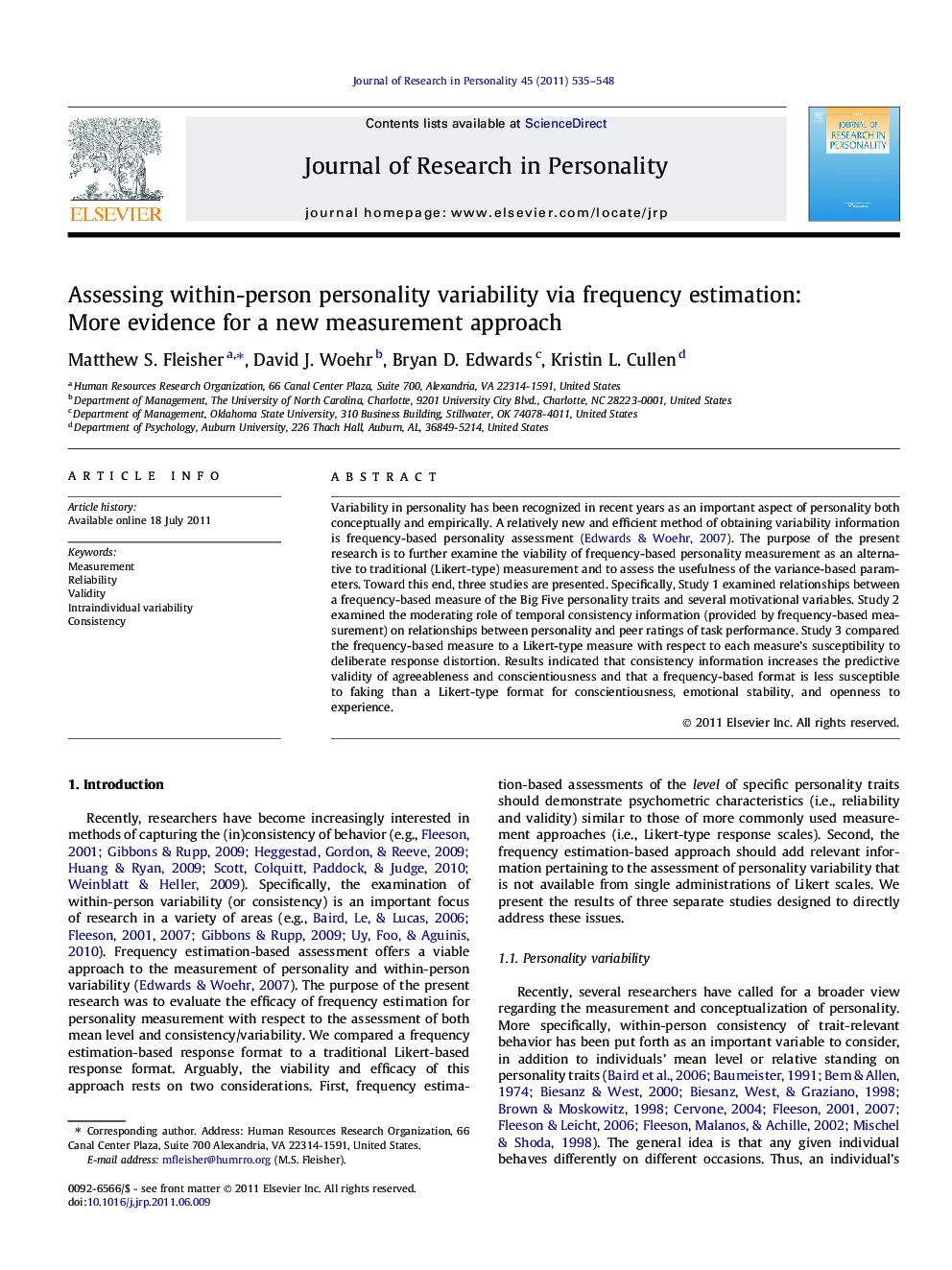| Article ID | Journal | Published Year | Pages | File Type |
|---|---|---|---|---|
| 951700 | Journal of Research in Personality | 2011 | 14 Pages |
Variability in personality has been recognized in recent years as an important aspect of personality both conceptually and empirically. A relatively new and efficient method of obtaining variability information is frequency-based personality assessment (Edwards & Woehr, 2007). The purpose of the present research is to further examine the viability of frequency-based personality measurement as an alternative to traditional (Likert-type) measurement and to assess the usefulness of the variance-based parameters. Toward this end, three studies are presented. Specifically, Study 1 examined relationships between a frequency-based measure of the Big Five personality traits and several motivational variables. Study 2 examined the moderating role of temporal consistency information (provided by frequency-based measurement) on relationships between personality and peer ratings of task performance. Study 3 compared the frequency-based measure to a Likert-type measure with respect to each measure’s susceptibility to deliberate response distortion. Results indicated that consistency information increases the predictive validity of agreeableness and conscientiousness and that a frequency-based format is less susceptible to faking than a Likert-type format for conscientiousness, emotional stability, and openness to experience.
► We examined the variance-based parameters of frequency-based personality measurement. ► Frequency-based personality traits were related to motivation and task performance. ► Temporal consistency increased the validity of agreeableness and conscientiousness. ► The frequency-based format was less susceptible to faking than a Likert-type format.
